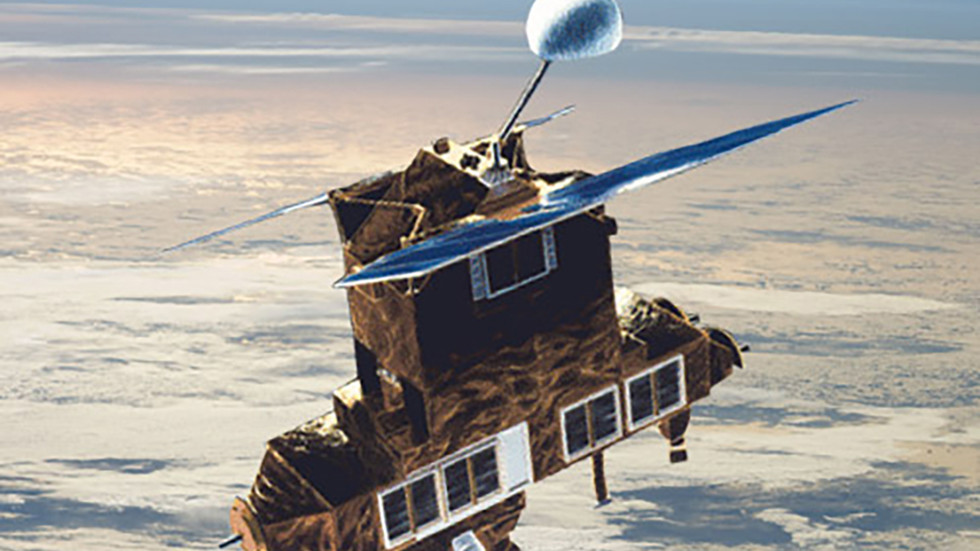
The US space agency reassured the public that the chance of anyone being injured by debris was low
© NASA
A defunct American satellite is expected to fall out of the sky this weekend, but it most likely won’t hurt anybody, the US space agency NASA revealed on Friday, stressing the odds of debris actually harming anyone were “very low,” at approximately 1 in 9,400.
The 38-year-old, 5,400-pound (2,449 kg) Earth Radiation Budget Satellite is expected to reenter Earth’s atmosphere on Sunday night around 6:40pm Eastern Time, plus or minus 17 hours, according to the Defense Department. While most of it is expected to burn up upon reentry, some parts may survive the fall.
Aerospace Corp., a space-focused research and development firm, predicts a Monday morning landing for the debris, which will cross Africa, Asia, the Middle East, and the western areas of North and South America.
Read more
The ERBS was launched in 1984 from Space Shuttle Challenger as one of three satellites comprising the Earth Radiation Budget Experiment mission. It was released into orbit by Sally Ride, the first American woman in space. While its lifespan was only supposed to be two years, it continued to take measurements until 2005.
The satellite was outfitted to measure the earth’s “energy budget,” the balance between how much of the sun’s energy the planet absorbs and how much it radiates, and to measure the amount of ozone, water vapor, nitrogen dioxide, and aerosols in the stratosphere. Its stratospheric measurement instrument, known as Stratospheric Aerosol and Gas Experiment II, is credited with confirming the thinning of the ozone layer, which absorbs most of the sun’s ultraviolet radiation.
Neither NASA nor the Defense Department explained why the satellite fell out of orbit. While satellites occasionally collide with each other, this is supposedly rare. However, Earth’s orbit is becoming increasingly crowded with thousands of private-sector satellites from Starlink and other wireless internet providers, so much so that astronomers are concerned that the amount of light they reflect may soon make it impossible to see into space and are calling for a moratorium on their launch.
